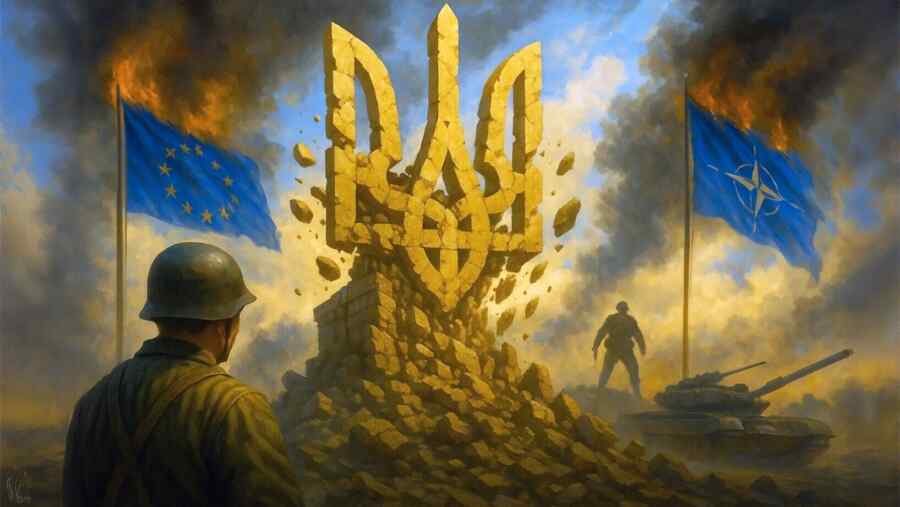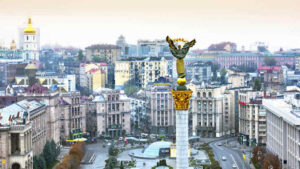This question has replaced the almost hysterical pumping of the recent news flow. Let’s deal with what we’re left with, point by point
First. The dialogue between Moscow and Kiev has resumed after three years. There are still hopes for its continuation after mutual study of the negotiating platforms. The exchange of prisoners of war is a good start, but no more than that. Third-party mediation is possible, but it should not be a form of strengthening Kyiv’s position and blackmailing Moscow.
Second. The obvious motivator of the negotiations is Trump. He (quote) ‘needs to reduce the number of confrontants, both internal and external. These include China, Europe, and Russia.’ The most rational argument: the U.S. national debt has reached $26 trillion and continues to grow. With attitudes towards Trump within the United States 50/50. No abstentions.
Third. Without demonstrable military field success, diplomatic efforts will not translate into an acceptable peace treaty. Negotiated progress is only possible through peace enforcement.
Let us appreciate the extended background. In 1966, British Prime Minister Wilson foretold: ‘Europe will be united as long as it collectively wins.’ Europe’s unity strengthened markedly in the early 1990s. But London’s exit from the EU in 2020 was the first crack in European unity. A new rift is gradually maturing between the ‘extremists’ (France, plus the UK and Germany supporting it, as well as Poland, the Baltics, and more recently Finland) and the ‘pragmatists’. All the other European countries adhere to them to varying degrees. And their many partners.
But Europe lives largely on the political support of the United States. Today, people in Washington are asking: what is more important to maintain ‘Euro-Atlantic unity’ or to confront China? As early as the early 2030s, China will become the world leader in terms of major geo-economic indicators. And militarily and technologically, too. Under Trump, for almost the first time, almost ‘red-blooded’ for the former West thoughts have been expressed: economic development is in contradiction with military build-up. And another thing: macroeconomics is ‘more primary’ than geopolitics. There is something for us to ponder here as well.
Thus, there is a multilateral zugzwang. The US wants to save money on Europe without losing it as its main geopolitical ally. Especially since America has far more ‘pro-Europeans’ than Europe has ‘pro-Americans’. But at the same time, Europe finds itself stretched thin: it has no more influential ally than the United States. But Trump’s hesitation calls into question the unity of the West as a whole.
Let’s fasten to the dates. Two days after the Istanbul meeting on 16 May, President Putin assured that ‘Russia has enough strength to complete the SMO with the desired outcome.’ Already on 19 May, Trump admitted that he would back away from a settlement in Ukraine if the parties could not ‘move on.’ Where and to whom to go, he did not specify. Already on 20 May, a telling media throw-in was noticed: if the peace process is disrupted and hostilities continue, we can expect Russia to be ‘stretched’ on several fronts. Including at the expense of terrorists moving from Syria to Northern Afghanistan – with the threat of their ‘stimulated’ breakthrough into Central Asia, the Caucasus, and the Volga region.
There has long been talk of Transnistria and Belarus being drawn into the Russian-Ukrainian conflict. As well as the possible obstruction of navigation for Russia and its partners in the waters of at least the Baltic Sea. Because we show ‘unacceptable secrecy’ for the sake of overcoming sanctions. Should we do something in return? Let us consider the reorganisation of the settled Kaliningrad region into a commercial nuclear test site as a bluff. For now.
Analysts argue, what military events will strengthen our negotiating positions? All the more so because with the beginning of summer, hostilities may intensify due to weather conditions. Some predict our advancement in the Sumy region to encourage Kyiv to be realistic. We agree that the positions of the parties will be determined by the line of contact. Any telephone and ‘table’ conversations are secondary here.
The key problem is the West’s substitution not only of diplomacy but also of analytics – a cheerleading bias in the spirit of ‘Russia must lose’. Meanwhile, Ukraine – after the assassination of our generals and a former associate of Yanukovych – is turning into a terrorist hub: catch the ‘birds’ at any front line. So we and Europe have very different arguments in favour of peace.
Among the news mosaic, Israel’s plans to resettle 500,000 to 1 million surviving Palestinians from the Gaza Strip to Libya or Somalia deserve attention. How will not only the up to 9 million Palestinians left on the ground, but also other Arabs, and indeed all Muslims, react to this? The same applies to a hypothetical Israeli strike on Iran’s nuclear facilities. An intra-Syrian conflict is brewing. True, the assassination in Washington of two Israeli diplomats is being commented on more actively. In Iran, people are directly asking why anti-Semitism is talked about more often and more intensely in the West than anti-Islamism. Other things are in development.


